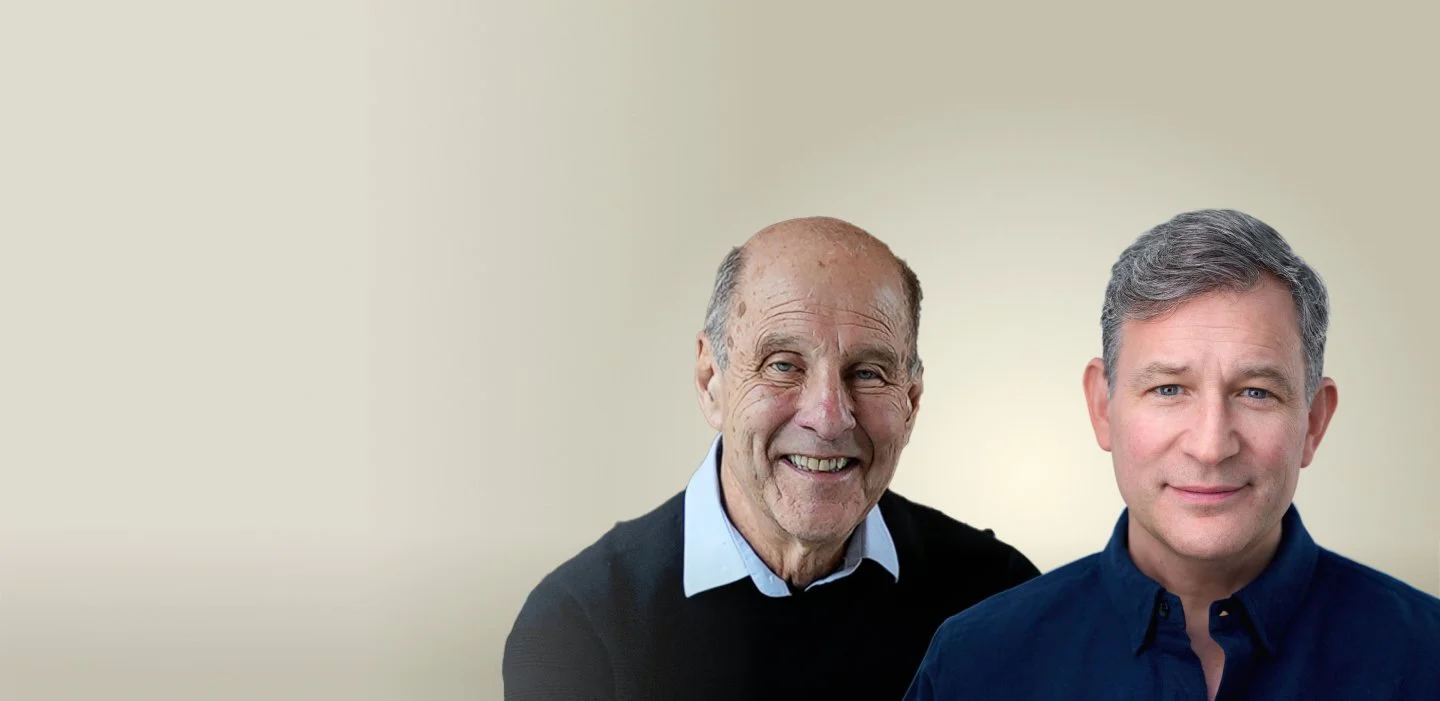
Dr. Spiegel & Dan Harris “10% Happier”
Tune into this transformational interview between Dan Harris and Associate Chair of Psychiatry at Stanford and Reveri Founder, Dr. David Spiegel.
Exclusive: Redeem 20% off a year or lifetime with code 10HAPPIER

Dr. Spiegel & Dan Harris “10% Happier”
Tune into this transformational interview between Dan Harris and Associate Chair of Psychiatry at Stanford and Reveri Founder, Dr. David Spiegel.
Exclusive: Redeem 20% off a year or lifetime with code 10HAPPIER
Backed by 45+ years of research
After just one Reveri session, users report significant improvements
77%
feel less pain
84%
feel less stress & anxiety
90%
feel more rested
"Our research shows that self-hypnosis techniques can significantly reduce pain intensity and improve quality of life, without the side effects of medication."
Save 20% on a year or lifetime of Reveri with code 10HAPPIER
The Science of Self-Hypnosis with Dr. David Spiegel
“Your brain has much more flexibility in modulating how you feel and how your body acts than we give ourselves credit for.”
— Dr. David Spiegel on 10% Happier
Episode Highlights
In the latest episode of 10% Happier with Dan Harris, the prolific podcast host and Dr. David Spiegel dive deep into clinical and research basis of hypnosis.
What hypnosis actually is — and how it does or doesn’t differ from the mainstream conceptions (ie stage hypnotists)
The types of people who are — and aren’t — hypnotizable. And why.
We go over the steps of self-hypnosis, so you can do it at home
We talk about the differences between hypnosis and a flow state
The difference between hypnosis and meditation
What happens in the brain during the hypnosis
And what hypnosis is helpful for, including stress, anxiety, and panic (sidenote: Dan agreed to do the interview because he really wanted to see if hypnosis could help him with his ongoing claustrophobia on airplanes and elevators. You’ll get to hear him try…)
-
00:11 – What is hypnosis?
Dr. Spiegel defines hypnosis as “believed-in imagination”—a natural state of highly focused attention, similar to flow.01:22 – Stage hypnosis vs. clinical hypnosis
Why stage hypnotists only pick the most hypnotizable people—and the lesson we can still learn from it.03:34 – Is hypnosis something done to you or by you?
Spiegel explains why all hypnosis is self-hypnosis and why it’s about gaining control, not losing it.04:34 – Who can be hypnotized?
The role of genetics, childhood imagination, and even trauma in hypnotizability.06:22 – What hypnosis can help with
Evidence-backed benefits: reducing anxiety, stress, pain, phobias, insomnia, and breaking habits like smoking.07:28 – Landmark clinical trial
Patients using self-hypnosis during surgery reported far less pain, needed fewer opioids, and even reduced procedure time.10:32 – How hypnosis works in the brain
fMRI research shows hypnosis reduces activity in the brain’s “alarm system,” strengthens mind-body connections, and quiets self-critical rumination.14:00 – Hypnosis and suggestion
Why it’s not about being told what to do, but about learning new ways to regulate the body and mind.15:04 – Controlling bodily functions
Spiegel shares a study showing hypnosis can change gastric acid secretion—demonstrating real physiological control.16:00 – Hypnosis as more agency, not less
Hypnosis enables people to take charge of their psychology and physiology.19:00 – Dan tries a hypnosis demo
Dr. Spiegel guides Dan through a classic hypnotizability test with eye rolls, floating hands, and suggestions.25:10 – Results of the demo
Dan scores 6.5 out of 10 on hypnotizability and experiences tingling and lightness in his hand.27:05 – Applying hypnosis to fear of flying
Dr. Spiegel walks Dan through a self-hypnosis protocol for flight anxiety.31:00 – Three steps to reframe airplane anxiety
Float with the plane,
See the plane as an extension of your body/brain,
Distinguish possibility from probability.
39:00 – Hypnosis vs. exposure therapy
Why hypnosis can be a faster, easier path for anxiety relief compared to gradual exposure.43:19 – Self-hypnosis exercise recap
Dan summarizes the steps: eye roll → deep breathing → floating imagery → cognitive reframing.47:00 – Reveri App
Dr. Spiegel introduces Reveri, his guided self-hypnosis app for stress, sleep, pain, and fear of flying.49:39 – Hypnosis vs. meditation
How hypnosis differs from mindfulness and loving-kindness meditation, and why hypnosis is more problem-focused.55:11 – Why the eyes matter
Spiegel explains the neuroscience of eye movement and altered states (including links to EMDR and brainspotting).59:27 – Breathwork for panic
Cyclic sighing (long exhales) as a quick tool for calming the nervous system.1:01:24 – One-and-done?
Some people need repeated practice; others see lasting change in a single session.1:05:02 – How hypnotizability is measured
Spiegel explains the scoring and why it’s as stable as IQ.1:06:22 – Closing thoughts
Hypnosis as an underused, powerful tool for agency, healing, and mental resilience.
Real stories of transformation
Reveri helped these people achieve their goals, and it can do the same for you.

Limited Time Only
Save 20% on a year or lifetime of Reveri with code 10HAPPIER
HOW IT WORKS
Hypnotherapy app that adapts to you
Our AI analyzes your responses in real-time to personalize each session for maximum effectiveness.
Real-time voice sessions, crafted for instant relief
Our App listens and responds to your voice in real-time, adjusting the session based on your current condition and goals.
This dynamic approach ensures you get exactly what you need in the moment, for immediate relief.

Start your journey to a better you today
Well done for making it here - that’s a big first step. Hypnosis is rooted in decades of clinical research. Harness it to transform your life today.















